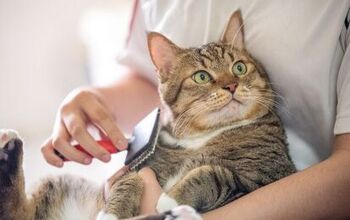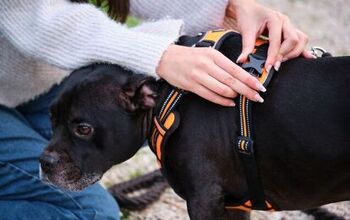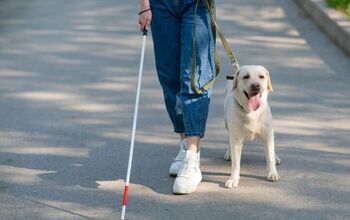Study Suggests Shared Risk For Diabetes Between Dogs And Their Humans

A new study out of Sweden and the United Kingdom suggests that the humans of dogs who have diabetes are more likely to develop Type 2 Diabetes as well.
The study, which also looked at the relationship between cats and their humans and any health connections, didn’t come as quite a surprise since research often suggests that dogs who belong to overweight people tend to be overweight as well. That connection may lead to a shared sedentary lifestyle and factors into both a dog’s and human’s risk rates for developing Type 2 Diabetes.
The research did not find a similar association between cats and their owners.
Related: 7 Common Symptoms Of Dog Diabetes
The team looked at Swedish veterinary records that ranged between 2004 and 2006, and they identified almost 210,000 owner-dog pairs and almost 124,000 owner-cat pairs.
The used the Swedish National Patient Register, The Cause of Death Register and the Swedish Prescribed Drug Register to identify owners with Type 2 Diabetes. They used veterinary insurance records to identify corresponding dogs with diabetes.
They found that in humans, irrespective of their pets’ health, 7.7 cases of diabetes per 1,000 human years existed. Cat owners had slightly more diabetes with 7.9 cases per 1,000 human years. When the team looked at the pets, 1.3 cases of diabetes occurred per 1,000 dog years and 2.2 cases of diabetes for every 1,000 cat years occurred.
When they looked at pet health and their human owner health together, though, the results were strikingly different.
Related: Understanding Feline Diabetes
People who owned a dog with diabetes were 38% more likely to develop Type 2 Diabetes than those who owned a dog that didn’t have diabetes.
They also found the reverse to have correlation–dogs who had owners with Type 2 Diabetes were 28% more likely to develop diabetes themselves. They did note that once human age was factored in, the finding was not statistically significant. They also noted no association between humans and their cats with regard to diabetes findings.
The research team recognize there are limitations to their study in that the dog and cat owners were restricted to those who had financial opportunity to buy pet insurance. And, they also believe that the fact that dogs and their owners tend to be about the same activity levels than cats and their humans may be a factor.
Humans who tend to exercise more and are physically active, especially outdoors, typically are healthier, and their dogs are too because they often accompany them. A cat’s activity level, however, is more individual and less dependent on its human.
The researchers believe that the study suggests a hard look at a human’s health and lifestyle if their dog receives a diabetes diagnosis, and vice versa in protecting their dog’s health should they have Diabetes.

More by Lori Ennis























